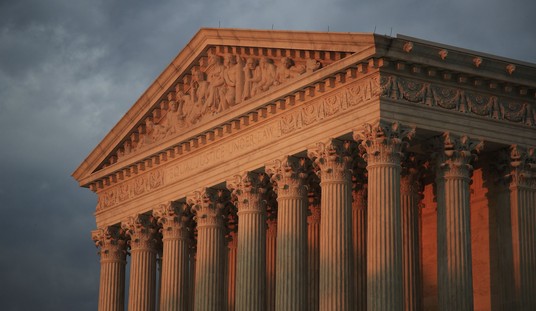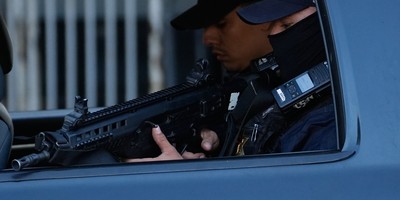More than two years after the Benghazi terror attack, recommendations made by the Accountability Review Board about how to boost security and protect Americans working around the world at diplomatic posts have been ignored by the State Department. Members of the Benghazi Select Committee, led by Republican Congressman Trey Gowdy, raised serious concerns on Capitol Hill Wednesday during testimony given by officials involved in either implementing or recommending new security measures.
Assistant Secretary for Diplomatic Security Greg Starr testified that although "tremendous progress on the 29 Benghazi ARB recommendations" have been made, the position of Under Secretary for Diplomatic Security has not been created despite being the number one recommendation from the ARB to prevent future security lapses. The same recommendation was made after the bombing of the U.S. Embassy in Kenya more than a decade ago.
Former Homeland Security Assistant Secretary for Infrastructure Protection and member of the Independent Panel of Best Practice Todd Keil testified that security recommendations haven't been implemented and reconfirmed U.S. Ambassador Chris Stevens repeatedly asked for more security leading up to the 9/11 attacks and was denied multiple times.
"Our Panel was committed to identifying best practices from throughout the U.S. government, the private sector, non-governmental organizations, and international partners which can which can finally establish an effective risk management process in the Department of State, improve the security of U.S. diplomatic facilities abroad and enhance the safety of Department of State and foreign affairs agencies’ personnel not only in high-risk areas, but globally. We identified 40 recommendations to achieve this goal. We continue to stand behind our report in the strongest possible terms, and believe that each of the 40 recommendations and the supporting narratives, which were derived from well - known and established best practices , provide a clear road map for security management enhancements throughout the Department of State," Kiel said. "In meeting earlier this year with Deputy Secretary Higginbottom and Assistant Secretary Starr, we were encouraged by their candor and support for our recommendations and their stated intent
to adhere to the recommendations in our report. In light of the long history of such reports and recommendations to the Department of State, and with a continuing sense of responsibility, we voiced our concerns in a recent letter to Deputy Secretary Higginbottom, both for those recommendations not implemented and those that apparently rely on pre-Benghazi processes and procedures to demonstrate or achieve implementation."
Recommended
"Clear the smoke and remove the mirrors," Kiel continued. "Now is the time for the Department of State to finally institutionalize some real, meaningful and progressive change. Words and cursory actions by the Department of State ring hollow absent transparency, and verifiable and sustainable actions to fully put into practice the letter and the intent of our recommendations, which will facilitate diplomacy and safeguard the selfless Americans who carry out our national security priorities around the world."
Leading up to the Benghazi attack, the State Department relied on Libyian militias for consul security. According to State Department Deputy Spokeswoman Marie Harf, relying on local militias or security personnel is standard practice that continues today.
























Join the conversation as a VIP Member